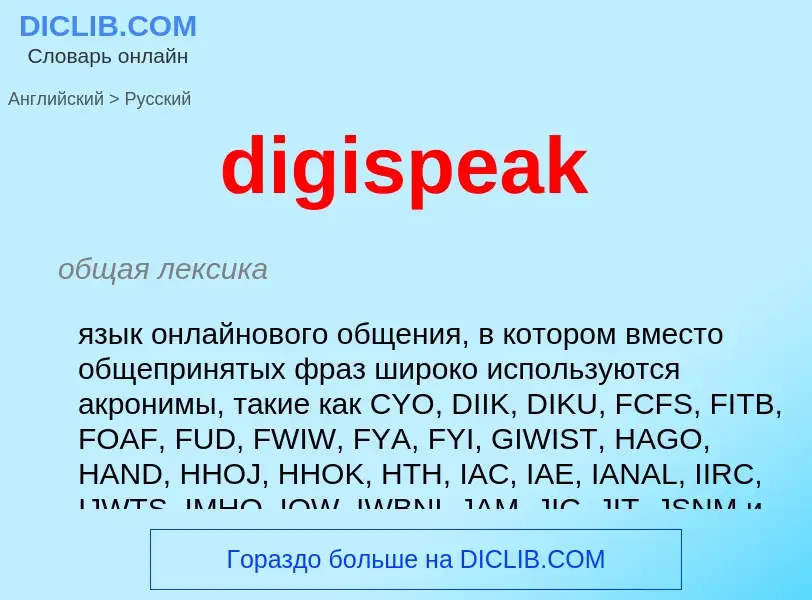Traduction et analyse de mots par intelligence artificielle ChatGPT
Sur cette page, vous pouvez obtenir une analyse détaillée d'un mot ou d'une phrase, réalisée à l'aide de la meilleure technologie d'intelligence artificielle à ce jour:
- comment le mot est utilisé
- fréquence d'utilisation
- il est utilisé plus souvent dans le discours oral ou écrit
- options de traduction de mots
- exemples d'utilisation (plusieurs phrases avec traduction)
- étymologie
digispeak - traduction vers russe
общая лексика
язык онлайнового общения, в котором вместо общепринятых фраз широко используются акронимы, такие как CYO, DIIK, DIKU, FCFS, FITB, FOAF, FUD, FWIW, FYA, FYI, GIWIST, HAGO, HAND, HHOJ, HHOK, HTH, IAC, IAE, IANAL, IIRC, IJWTS, IMHO, IOW, IWBNI, JAM, JIC, JIT, JSNM и сотни других
дословная передача
цифровой язык, диджиспик
Définition
LOL is internetese for laugh out loud
Wikipédia

Internet slang (also called Internet shorthand, cyber-slang, netspeak, digispeak or chatspeak) is a non-standard or unofficial form of language used by people on the Internet to communicate to one another. An example of Internet slang is "LOL" meaning "laugh out loud". Since Internet slang is constantly changing, it is difficult to provide a standardized definition. However, it can be understood to be any type of slang that Internet users have popularized, and in many cases, have coined. Such terms often originate with the purpose of saving keystrokes or to compensate for small character limits. Many people use the same abbreviations in texting, instant messaging, and social networking websites. Acronyms, keyboard symbols, and abbreviations are common types of Internet slang. New dialects of slang, such as leet or Lolspeak, develop as ingroup Internet memes rather than time savers. Many people also use Internet slang in face-to-face, real life communication.


